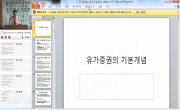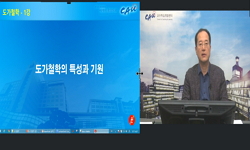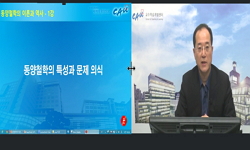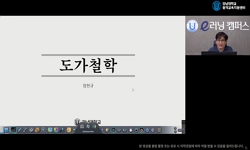본 논문은 16세기 조선시대에 살았던 토정 이지함의 경세제민(經世濟民) 사상에 관한 연구이다. 그에 대해 이인(異人)이나 기인(奇人) 또는 토정의 이름으로 가탁(假託)된 ��토정비...
http://chineseinput.net/에서 pinyin(병음)방식으로 중국어를 변환할 수 있습니다.
변환된 중국어를 복사하여 사용하시면 됩니다.
- 中文 을 입력하시려면 zhongwen을 입력하시고 space를누르시면됩니다.
- 北京 을 입력하시려면 beijing을 입력하시고 space를 누르시면 됩니다.
https://www.riss.kr/link?id=T14478669
- 저자
-
발행사항
서울 : 동방문화대학원대학교, 2017
-
학위논문사항
학위논문(석사) -- 동방문화대학원대학교 , 미래예측학과 명리학전공 , 2017
-
발행연도
2017
-
작성언어
한국어
- 주제어
-
KDC
188.5 판사항(6)
-
DDC
133.3 판사항(23)
-
발행국(도시)
서울
-
형태사항
vii, 76장 : 천연색삽화 ; 26 cm
-
일반주기명
지도교수: 金萬泰
참고문헌: 장 73-76 - 소장기관
-
0
상세조회 -
0
다운로드
부가정보
국문 초록 (Abstract)
본 논문은 16세기 조선시대에 살았던 토정 이지함의 경세제민(經世濟民) 사상에 관한 연구이다. 그에 대해 이인(異人)이나 기인(奇人) 또는 토정의 이름으로 가탁(假託)된 ��토정비결��의 지은이로 알려져 있지만 그의 사상이 과소평가 되어진 부분이 있다. 본 연구를 통해 그의 사상이 현대에서 재평가되고 재조명되는 계기가 되길 기대한다. 본 연구는 그의 경세제민 사상에 나타난 백성을 위한 사상과 정책에 관한 연구로서, 그의 사상과 정책은 현대의 정치적·경제적·사회적 상황에서 본받을 만한 점이 있다.
그의 경세제민 사상에는 정치적인 도덕성을 강조하는 유가적인 지도자로서의 자질이 내재되어 있다. 그의 사상에는 민심을 얻는 정치와 또한 적절한 인재 등용의 중요성이 피력되어 있다. 그는 사농공상(士農工商)의 본말관(本末觀)을 보완하여 경제적인 안정을 추구하였다. 16세기에는 소빙기(小氷期)로 인한 이상 기후와 자연재해로 인한 가뭄과 흉작이 거듭되어 매우 궁핍하였다. 이를 극복하기 위한 대책으로 자원개발을 통한 부국안민(富國安民)과 이용후생(利用厚生)을 그는 주장하였다. 그는 또한 농업 이외의 상공업(商工業), 어염(魚鹽), 광업(鑛業) 등을 통한 산업발전 제시는 그 당시 조선의 유교적인 질서에서 매우 진보적인 사상이라고 할 수 있다.
사회적으로는 군제 개혁과 세제 경감을 주장하였다. 특히 그는 걸인청(乞人廳)을 세워서 유리민(遊離民)과 걸인들의 복지를 향상시킨 것은 창의적인 통찰을 통한 합리적인 발상의 정책이라고 할 수 있다. 이것은 정부 차원의 최초 빈민구제법인 영국의 엘리자베스 구빈법(1601년, Elizabethan Poor Laws)과 유사한 점이 있지만 민간 차원에서의 복지라는 점에서 더욱 큰 의미를 둘 수 있다.
토정 이지함은 풍수지리에 능통하였으며 특히 비보풍수(裨補風水)를 심층 연구하였다. 또한 그는 경강상인(京江商人)의 주요 활동 무대인 한강변 마포나루에 토정(土亭)을 짓고 생활하였다. 배를 이용하여 소금이나 바가지 등을 운반하여 나누어 주는 등의 민생을 위한 행보를 하였다. 그는 기부와 구휼을 몸소 행하는 명문가 출신의 상업을 하는 선비이었다. 그의 상업관과 해양 물류에 관한 감각은 조선 후기 대동법과 해외 통상론 그리고 북학파와 실학파에 영향을 끼친다.
그는 네 차례에 걸친 정치적인 사화(士禍)로 인해 은거하는 사림(士林)으로 현실정치에 오랫동안 참여하지 못하였다. 인생의 만년에 탁행으로 천거되어 포천 현감과 아산 현감으로 부임 후 조정에 올린 상소문을 근거로 연구하였다. 이에 의하면 그의 사상은 애민에 바탕을 둔 민생 우선의 정책들이다. 진보적이고 창의적이며 합리적이고도 실용적인 사상이라고 할 수 있다.
춘추전국시대의 제자백가(諸子百家) 사상은 그의 정책이나 사상에 영향을 끼친 것으로 보인다. 그의 사상에는 유가적인 경향과 도가적인 경향이 두드러지게 나타나는데, 그는 상반된 두 사상을 수용하고 승화하였다. 그의 가치관에는 인(仁)·민본(民本)·효제(孝悌)·정명론(正名論)을 중시하는 유가적(儒家的)인 경향이 나타고, 그의 기행 및 인간 내면의 마음 다스림이나 육체적·정신적인 치유에서는 도가적(道家的)인 경향인 나타난다. 그는 율곡 이이와 동 시대에 살면서 친분도 두터웠다. 이이(李珥)가 현실 정치의 주류(主流) 공직자이었다. 반면에 이지함은 만년에 한때 공직생활을 하였지만 정치적인 권력의 대립과 소용돌이로 인해 현실정치에서 소외된 경세제민가이다. 이상에서 기술한 바와 같이 그의 애민에 바탕을 둔 경제제민 사상이 현대인에게 다소 과소평가되어 있으므로 그의 사상과 정책들이 다시 논의되고 재평가가 이루어지기를 기대한다.
다국어 초록 (Multilingual Abstract)
This thesis examines Tojeong Lee Jiham's idea of Gyeongsejemin(administration to relieve the people's suffering, 經世濟民) who lived in the 16th century of Joseon dynasty. He's known as an extraordinary or eccentric person, or the writer of ම...
This thesis examines Tojeong Lee Jiham's idea of Gyeongsejemin(administration to relieve the people's suffering, 經世濟民) who lived in the 16th century of Joseon dynasty. He's known as an extraordinary or eccentric person, or the writer of ��Tojeongbigyeol�� under the pretense of the name of Tojeong, but his ideas have been underestimated. This study is expected to offer the opportunity for his thoughts to be re-evaluated and re-illuminated today. This research is the study on his thoughts and policies for people expressed in his idea of Gyeongsejemin, and his thoughts and policies have good aspects to follow in today's political, economic and social condition.
His idea of Gyeongsejemin implied a Confucian leader's qualification with emphasis on political morality In his thoughts, politics to win popularity and also proper appointment of talented men to positions were regarded important. He supplemented Bonmalgwan(the theory of essence-end, 本末觀) of Sajonggongsang(the traditional four classes of society-scholars, farmers, artisans and tradesmen, 士農工商), and pursued economic stability. In the 16th century, drought and poor harvest repeated because of abnormal climate and natural disasters resulting from littleice age, so people were in very needy circumstances. As the countermeasures to overcome them, he argued Bugukanmin(making a rich country and appeasing the people, 富國安民) and Yiyonghusaeng(promotion of public welfare, 利用厚生) by developing resources. He also suggested industrial development through commerce and industry, fishing industry and salt manufacturing(魚鹽), mining industry(鑛業) and etc. other than agriculture, which was a very progressive idea in the Confucian order of Joseon at that time. It exercised an influence on Bukhakpa(northern practical learning school) and Silhakpa(realist school of Confucianism) in the latter part of Joseon.
Socially, he insisted on the reformation of the military system and tax relief. He founded Geolincheong(乞人廳) and improved the welfare of wandering people and beggars, and it was a reasonable policy through creative insights. It was similar to the first governmental law to help the poor, the Elizabethan Poor Laws of England in 1601, yet it was more meaningful in that it was welfare in a private sector.
Tojeong Lee Jiham was a master of the idea of topography. In particular, his Pugsubibo(complementary setup Fengshui, 風水裨補) was examined. Tojeong Lee Jiham built an earthen pavilion at Mapo port at the riverside of Han River, where Gyeonggang merchants mainly worked, and lived there. He did activities for public welfare, for instance, he conveyed salt or large bowls by ship and gave them out to people. He was a classical scholar from a prestigious family who was engaged in commerce and practiced donation and relief himself. This view of commerce and sense of maritime distribution affected Daedongbeop, principle of overseas trade, Bukhakpa and Silhakpa in the latter part of Joseon dynasty.
As a Sarim(Confucian scholar, 士林) living in retirement because of four times of political massacres of scholars during Joseon dynasty, he didn't participate in the real politics for a long time. Later, he was recommended for his excellent conducts in his later life, and was appointed as a governor in Pocheon and Ahsan, and his ideas were investigated grounded on the documents of his public appeals to the royal court after his appointment to the regions. According to them, his thoughts were the policies with priority on public welfare based on love for the people. His thoughts were progressive, creative, reasonable and practical.
Hundred Schools of Thought(諸子百家) during Spring and Autumn period and Warring States period seems to have influenced his policies and thoughts. His ideas had noticeable Confucian and Taoistic tendency. He accepted and sublimated two contrary theories. His values had Confucian inclination that considered benevolence(仁), people-orientedness(民本), filial piety and brotherly love(孝悌), and Jeongmyeongron(view on correct use of names, 正名論) as important, and his eccentric conducts and controlling inner mind or physical and mental healing had a Taoistic tendency. He lived in the same age with Yulgok Lee Yi and they were close friends. While Lee Yi was a major governmental official in the real politics, Lee Jiham was a scholar of Gyeongsejemin who was excluded from the real politics because of the conflicts and maelstorm of political power even though he once served in public office in his later life. As mentioned above, his idea of Gyengsejemin based on love for people has been a bit underestimated by contemporary men, so his thoughts and policies are expected to be discussed again and re-evaluated.
목차 (Table of Contents)
- 1. 서 론 1
- 1. 연구배경과 목적 1
- 2. 선행연구 검토 4
- 3. 연구방향과 방법 5
- 2. 토정 이지함의 생애와 사상적 배경 8
- 1. 서 론 1
- 1. 연구배경과 목적 1
- 2. 선행연구 검토 4
- 3. 연구방향과 방법 5
- 2. 토정 이지함의 생애와 사상적 배경 8
- 1. 토정 이지함의 생애 8
- 2. 토정 이지함의 사상적 배경 10
- 3. 토정 이지함의 경세제민(經世濟民) 사상 24
- 1. 정치적인 관점 26
- 2. 경제적인 관점 30
- 3. 사회적인 관점 34
- 4. 토정 이지함 사상의 특징과 현대적 의의 41
- 1. 토정 이지함 사상의 특징 41
- 2. 토정 이지함 사상의 현대적 의의 63
- 5. 결론 69
- 참고문헌 73












